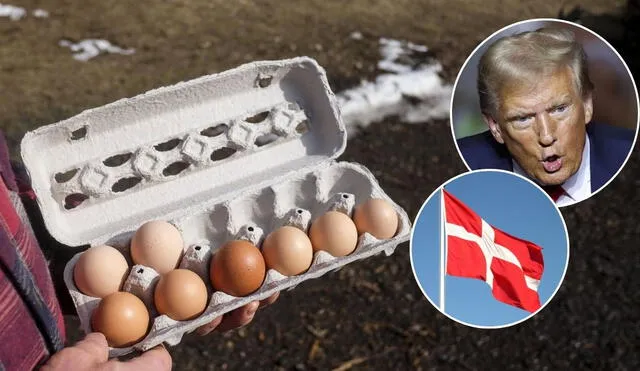Trump administration requests extra eggs from Denmark amid national shortage
Trump promised that he would tackle egg prices on "day one" of his administration but said in December 2024 that it was "hard to bring things down once they're up."

As the U.S. grapples with a severe egg shortage driven by the avian flu outbreak, the Trump administration is reaching out to European nations, including Denmark, for assistance.
This request comes amid a backdrop of strained relations heightened by recent President Trump remarks, including past threats to annex Greenland and impose steep tariffs on European goods.
Avian flu sparks egg crisis in the U.S.
The avian flu has devastated U.S. poultry farms, leading to the loss of over 20 million egg-laying hens in late 2024. This has caused egg prices to skyrocket, with a dozen eggs hitting a record high of $5.90 in February 2025, a 189% increase from August 2023.
To address the shortage, the U.S. Department of Agriculture (USDA) has contacted Denmark and other European countries to ramp up egg exports. In a letter to the Danish Egg Association, the USDA sought estimates on how many eggs Denmark could supply, emphasizing the need to meet U.S. import requirements.
“We’re still waiting for guidance from Washington, but do you have an estimate of the number of eggs that could be supplied?” the USDA letter stated.
Denmark’s response to U.S. regarding egg exports
While Denmark is open to exporting eggs to the U.S., the country faces limitations. Jørgen Nyberg Larsen, CEO of the Danish Egg Association, noted that Denmark doesn’t have a significant surplus of eggs, especially with increased demand ahead of Easter.
Additionally, European eggs are processed differently—they aren’t washed of their natural protective coating, unlike U.S. eggs. This difference in hygiene standards could complicate shipping and storage.
The U.S. has also sought help from Turkey, which plans to export 420 million eggs this year. However, this pales in comparison to the 7.5 billion dozen eggs produced annually in the U.S., highlighting the scale of the crisis.
A complex trade dynamic
The Trump administration’s request for European eggs contrasts sharply with its previous combative trade stance. President Trump has repeatedly threatened Denmark over Greenland and proposed a 200% tariff on European alcohol imports.
Experts like Thomas Kull, a supply chain management professor at Arizona State University, suggest that importing European eggs could help lower prices. However, logistical challenges, such as transportation infrastructure, could hinder large-scale shipments.
“The ultimate goal is to show that something is being done,” Kull said. “You don’t know exactly what’s going to work.”












